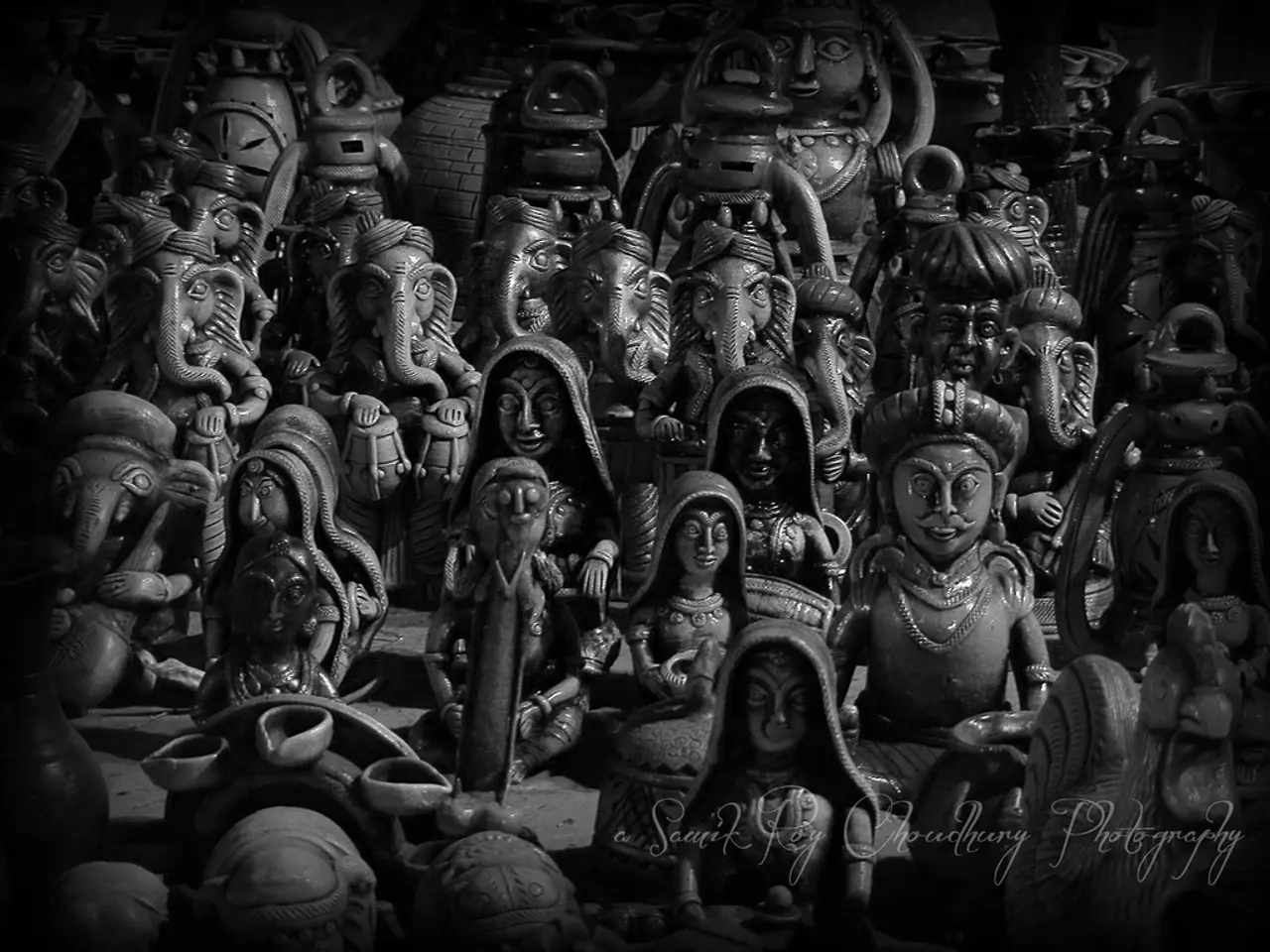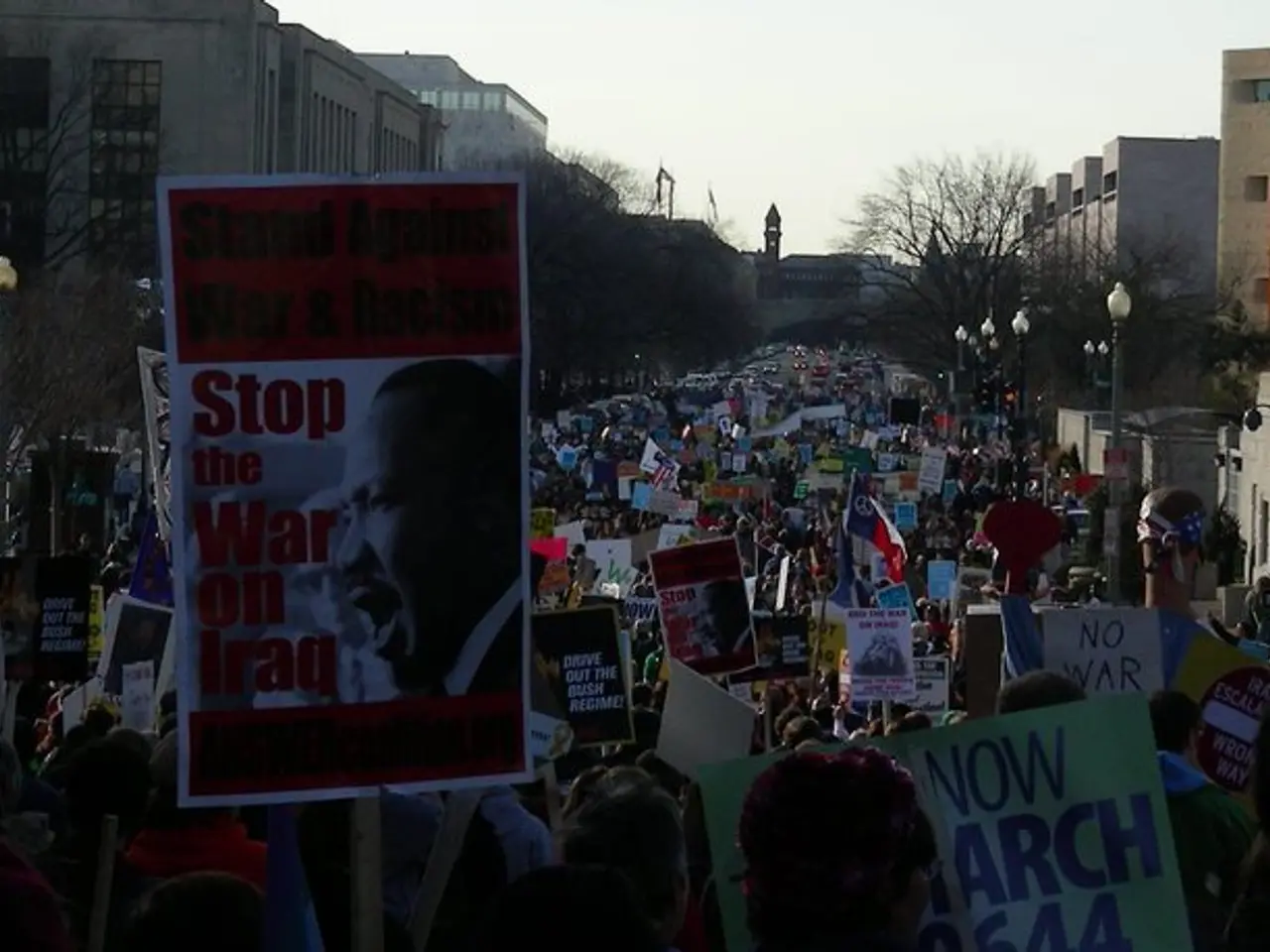Dalai Lama's Video Message and Succession on the Horizon
Potential Discussion About Dalai Lama's Potential Succession Plans in July - Dalai Lama Potential Discussion on His Successor Scheduled for 2nd of July
The Dalai Lama, the iconic spiritual leader of the Tibetans, is preparing to deliver a video message on July 2nd, potentially shedding light on the potential succession controversy swirling around him.
Although the specifics of the message remain under wraps, it may touch upon the ongoing question of whether a successor will assume the role of the Dalai Lama after his 90th birthday on July 6th.
The esteemed Nobel Peace Prize laureate has previously advocated for Tibetans to envision their future devoid of his presence, raising concerns among Tibetan exiles that China could seek a successor to strengthen its hold over Tibet. The Dalai Lama has insisted that if Tibetans desire to perpetuate the Dalai Lama institution and are seeking a successor, then they must be born in a free nation.
China's military occupation of Tibet dates back to 1950, and since then, it has maintained an iron grip over the autonomous region and neighboring provinces where many Tibetans reside. The Tibetan uprising against Chinese occupiers began on March 10, 1959, which was brutally suppressed by the People's Republic. As a result, the Dalai Lama was forced to flee, leaving behind thousands of exiles who found refuge in northern India. The exile government headquartered in a suburb of Dharamshala.
Beijing regards the Dalai Lama as a separatist, but the spiritual leader considers himself a humble Buddhist monk.
A Fresh Direction for the Dalai Lama Succession
As the Dalai Lama approaches his milestone birthday, he has hinted at altering the traditional methods for selecting his successor. This radical change is intended to obstruct Chinese interference in the selection process. Rumors swirl that he may name his successor ahead of his demise or choose an adult, potentially a female, candidate to steer clear of traditional gender and age biases. It is worth noting that the search for a new Dalai Lama typically begins posthumously, and even the process of selecting a new reincarnation has considerable appeal and reverence in the Tibetan community.
Chinese Ambitions and Interference
China's history of manipulating Tibetan Buddhist successions to exert control is well-documented. On several occasions, Beijing has appointed its own candidates for highly revered positions such as the Panchen Lama, effectively undermining the spiritual leaders' authority. The current Chinese authorities have recently issued regulations requiring Beijing's approval for the recognition of the Dalai Lama's successor and limiting the search to candidates within China. This move, aiming to exert strict control over the leadership, has sparked backlash from the international community.
A Globally Concerned World
The European Union and various other international bodies have publicly opposed China's interference in the Dalai Lama's succession. They view this as a Religious and political encroachment. Such interference could spark unrest among the Tibetan populace within China, given the widespread reverence for the Dalai Lama despite several decades of exile and repression.
As the world grows increasingly watchful, the future of Tibetan leadership hangs in the balance. The Dalai Lama's eagerly anticipated video message is a sign that the spiritual leader is ready to address the issue, and many Tibetans stand poised for his wisdom.
The Dalai Lama could discuss the potential succession controversy, including the possibility of altering traditional methods to obstruct Chinese interference, on July 2, in his video message.
This anticipated video message, combined with the international community's growing concern over China's religious and political encroachment, paints a complex picture of the upcoming future-altering events in the general-news and war-and-conflicts sphere related to the Tibetan succession and China's role in it.




